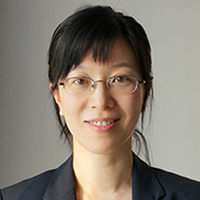


Hailan Hu
Professor
Zhejiang University
Email: huhailan@zju.edu.cn
Lab homepage: http://www.hailanhu-lab.net
2002 Dec.: Ph.D. in Neuroscience, University of California Berkeley, with Corey Goodman
1996 Jul.: B.S. in Biochemistry and Molecular Biology, Beijing University
2004-2008: Cold Spring Harbor Laboratory/UCSD, with Roberto Malinow
2003-2004: University of Virginia, with Julius Zhu and Roberto Malinow
2015-present: Professor, Senior Investigator, Executive director of Center for Neuroscience, Zhejiang University
2009-2015: Principal Investigator, Institute of Neuroscience, Chinese Academy of Sciences
1996-1997: Postgraduate researcher, University of California San Francisco
Emotions color our lives and profoundly shape the way we think and behave. Research in my lab aims to understand how emotional and social behaviors are encoded in the brain, with a main focus on the neural circuitry underlying depression and social dominance. Specifically we are looking into three major problems: First, we study how the brain represents emotions of different valence. Through simultaneously mapping the neural activity response to rewarding and aversive stimuli in the same mouse brain and at single cell resolution, we have identified a functional valence map. Second, we search for the molecular and circuit mechanism of depression, focusing on a brain region called habenula, which encodes negative reward. We have identified several key habenula-expressing molecules that play important roles in the etiology of depression. Third, we establish animal models for studying social hierarchy in mice and explore the neural mechanism underlying the dominance trait. We are recording and manipulating neural activity during social competition to study how dominance hierarchy arises from interplay between the activity of specific neural circuits and social experience such as history of winning or losing. We are tackling these problems using combinatorial techniques including imaging, electrophysiology (both in vitro and in vivo), molecular genetics and optogenetic. We hope that these studies will shed new light on the neural basis of some essential emotional and social behaviors, and provide therapeutic implications for the treatment of emotional disorders.
2016: TanJiaZhen Life Science Award
2016: 14th Chinese Young Scientist Award
2015: 12th L'Oreal Women Scientist Award of China
2015: Sanofi Scholar Award
2013: Meiji Life Science Outstanding Award
2012, 2014: Excellent Mentorship Award of Chinese Academy of Sciences
2010-2012: Shanghai Pujiang Talent Award
2009-2012: Chinese Hundred Talent Plan Award
2003-2006: Damon Runyon Foundation Postdoctoral Fellowship
2002: HHMI and IBRO fellowships for MBL Neurobiology Course
1998-2003: Howard Hughes Medical Institute Predoctoral Fellowship